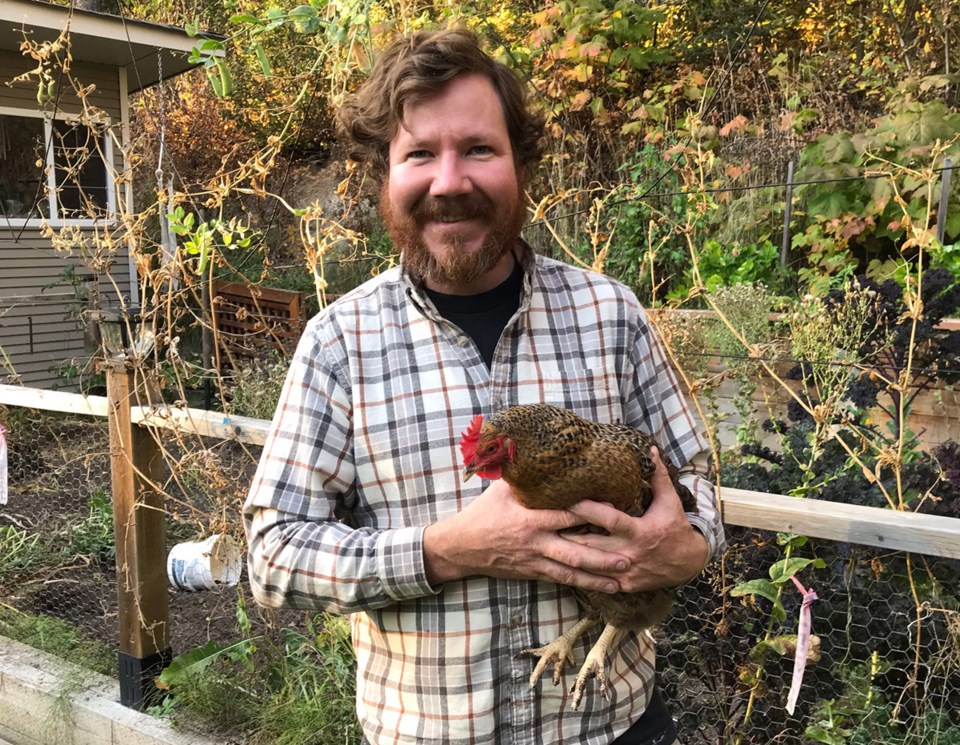Prince George city council candidate James Steidle thinks allowing more backyard chickens in the city is an eggcellent idea.
Currently, under the City of Prince George’s zoning bylaws, homes zoned Rural Residential are not allowed any chickens or other poultry on lots less than 2,000 sq. metres. Homes on lots 2,000 sq. metres and larger, but less than a hectare, may have up to 25 chickens or other poultry. Lots at least one hectare in size, but less than four hectares, may have up to 100 poultry and lots four hectares and larger may have any number of poultry.
Chickens and other poultry are not permitted at homes zoned Single Residential, Urban Residential or Suburban Residential.
In a statement issued on Thursday, Steidle incorrectly claimed that chickens are not permitted on any lots smaller than four hectares. Steidle vowed to support changes to allow a maximum of six chickens on smaller urban lots in the city.
“Twice in the last two years our vulnerability has been laid bare,” Steidle said in the statment “We are almost entirely dependent on Lower Mainland egg production and this dependency could be corrected with more backyard chickens right here in city limits.”
The city could impose rules stating that roosters are not allowed, and set requirements to ensure chickens are managed in a way that reduces odours and prevents wildlife interactions.
A motion to allow more urban chickens was brought forward to city council in 2016, over concerns about noise, smell and wildlife interactions, Steidle said.
“I think today’s reality shows we do need to start looking after ourselves, and that global supply chains can’t be relied upon in an era of growing uncertainty,” he said. “Local food offers more than just education. It offers independence, self-sufficiency, and a path to local economic security.”



